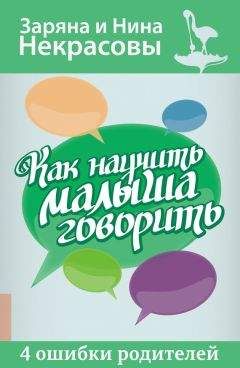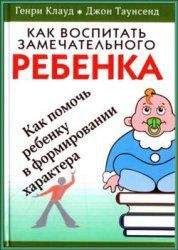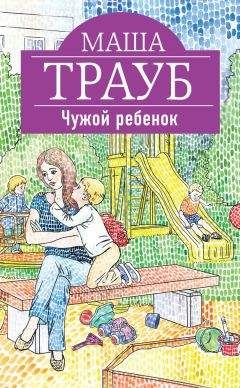Leo Frankowski - CONRADS QUEST FOR RUBBER
Kiejstut was the quiet Lithuanian who spoke so little that it was easy to forget that he was there. It turned out that he wasn't a Christian at all!
He was some sort of pagan, and had been going to church with the rest of us because he was afraid of what we would do to him if we found out the truth! Once the truth came out, it took us, and the priest who was teaching the class, a long time to relieve him of his anxieties. It was only when I told him to relax, that we weren't going to eat him, that he finally did calm down.
Secretly, I believe he really was worried about being eaten! That either his tribe or some of those around his people actually did eat human beings. Or maybe his tribal shaman, or whatever they had, had told him Christians ate people, I don't know.
But when the priest asked him if he would like to take some extra study, and then be baptized a true Christian, he jumped at the chance.
Long before the school was over, we all went to his christening.
We learned one very sad piece of news in the fall of 1241. Captain Targ was missing and presumed dead.
His parents had a farm west of Sacz, near the Dunajec River, and with Lord Conrad's blessings he and his brother, a platoon leader from another company, had borrowed a pair of conventional army horses and ridden east to visit them and see to their safety.
And that was all we knew.
They were never seen again. A lance sent out to look for them found nothing except the farm, which had been burned out by the Mongols, apparently in the early spring. There was no sign of Captain Targ's family, either.
With both our captain and our platoon leader dead, my lance felt that it was orphaned.
When most of the course was over, we all underwent an ordeal and a blessing. Sir Odon was included with us, since he had not yet performed this ceremony. After a day of prayer and fasting, with our souls in a State of Grace, we walked barefoot across a big bed of glowing coals. We were not harmed, being protected by God.
The others were perhaps more impressed by this miracle than I was, but then they had not seen golden arrows come out of the sky to kill four Crossmen who would have harmed Lord Conrad.
Then we did a night's vigil, praying on a hilltop outside the Warrior's School, and in the morning we looked down on the fog in the valley below. Each of us saw a halo, great rays, or horns of light, around the shadow of his own head, but not around the heads of the others. We had been individually blessed by God and were all knighted, and made Knights of the Order of the Radiant Warriors!
The next day, we were issued the army's new full-dress red and white uniform. We were amazed at the amount of gold that one wore on it.
There was a big, heavy medallion on the front of the peaked hat, and a band of solid gold below it. On the jacket there were golden tabs on the collar, huge gold epaulets on the shoulders, and solid gold buttons. Over it, one wore a belt with a solid gold buckle from which hung a fancy dress saber with a solid gold hilt and handle, and a matching dress dagger with matching gold trim..
Pinned to the jacket there was a huge and glorious gold medal, as big as your hand, announcing that we were members of the Order of the Radiant Warriors, and two smaller gold medals, one for the Battle of the Vistula and one for the Battle of Sandomierz.
Personally, I thought we should have been given a medal for the really tough job that we did, cleaning up the bodies east of the Vistula, but that didn't happen.
We even had golden spurs, like the French knights are said to wear, although ours had a rowel at the back, rather than the cruel spike they used. Not that any of us had been on a horse even once during our entire time in the army.
All told, we were to walk around with over eight pounds of gold hanging about our persons! I was relieved to discover that it was customary to wear this finery only at very special ceremonies and to otherwise leave our decorations locked up in the company vault.
Of course, we all planned to wear it home, at least once, and on any occasion when it was desirable to impress the ladies.
Once, I had told myself that the gold we got from the Mongols would only mean we would wear more jewelry, but somehow in the course of things, I had forgotten my own prediction!
There was one major sour point in all of this, however. Despite the fact that we had been knighted as part of our induction into the Order of the Radiant Warriors, and despite the fact that we had golden spurs, as only knights wore in France, and despite the fact that we had completed a course of study that resulted in the knighting of everyone else who had taken it before us, despite all of this, we were still not officially knighted, not as far as the army was concerned.
Sir Odon was still just a knight, not a knight-banner, as he had assumed he would be, and each of the rest of us was only a squire, at four pence a day, rather than a knight at eight.
"They hang eight pounds of solid gold on each one of us and then they are too cheap to pay us another four pence a day?" Zbigniew said.
We complained, but we didn't get very far, since everybody else was complaining about the same thing.
"It's the new policy," the baron's executive officer said to an angry crowd of us. "The graduates before you were promoted to knight because they would be immediately each given a lance of men of their own to train. Back then the army had to expand very rapidly to be able to meet the Mongol threat. But until we finish the training of everybody who took the short course just before the war, we will not be adding very many new members to the army. It only stands to reason that promotion will be slower."
Maybe it was reasonable to him, but it wasn't so to us. We locked away our new dress uniforms, put on our old class B uniforms, and went out and got roaring drunk.
We had orders to report for duty at East Gate in two weeks. Sir Odon, Zbigniew, and Lezek elected to go home on their leave, but there wasn't time for Taurus, Fritz, and Kiejstut to do so. They had, however, heard wonderful things about the girls of Okoitz, and I suggested they accompany me home.
We rented two rooms at the newly enlarged Pink Dragon Inn for the four of us, and I left them in the taproom staring at the nearly naked waitresses while I visited my family.
It was not a joyous homecoming.
Most of my family was eager enough to see me, but my father would not say a word to me. He came in, stared at me for a moment, then turned around and walked out.
It hurt.
I visited twice more during my leave, but nothing changed. My mother, my sisters, and my brother all promised to try to talk to him, but none of it did any good.
My friends had a marvelous time at Okoitz, and by joining them, I mostly had a good time, too. The ladies of the cloth factory seemed to think that being a Knight of the Order of Radiant Warriors certainly made one a true knight, and that anyway, any man who walked around wearing eight pounds of solid gold had to be worth spending some time with!
We discovered also that music was almost as good an aphrodisiac as wealth, and our new-taught musical skills did us yeoman service in the cause of Eros.
Since it was winter, the cloth workers dressed warmly enough at the factory, and they wore a long, heavy cloak to go between the castle, where they all lived, the factory, where they all worked, and the Pink Dragon Inn, where they all played.
But all of the Pink Dragon Inns were kept very warm because of the outfits their waitresses wore. Or rather, the outfits they pretty much didn't wear, since it consisted of little beyond high-heeled shoes and a loincloth.
As a result of the competition at the inn, the cloth workers usually wore only a very short skirt, with nothing above it. It was a lovely style, and well appreciated by all of us men.
Suffice it to say that for two weeks not one of the four of us ever slept alone, and it looked for a while as if Fritz was going to get married, although that affair soon fell apart. We were all happy when we left for East Gate, and would have been happier still if our heads had not hurt so badly.
Chapter Ten
From the Journal of Josip Sobieski
WRITTEN JANUARY 26, 1249, CONCERNING FEBRUARY 17, 1242
THEY HAD a brand-new boat ready for us at East Gate, but the river was frozen over, and the boat wouldn't be going anywhere for a while.
With nothing better to do, we spent a day inspecting the remarkable "snowflake" fort there. The outer walls were of reinforced concrete, seven yards tall and thick enough to stop any siege engine. The inner walls, twenty yards high, were actually part of a huge, hexagonal building that housed an entire company along with all of their dependents, as many as fifteen hundred people. The complex contained a church, a school, an inn, and a machine shop. All this was crowned by a central tower fully four dozen yards tall.
Properly manned, I did not see how any army could have possibly taken it. It had a reputation for invincibility, and that very reputation had been the cause of its downfall.
It had fallen during the war, when Count Lambert's sister-in-law had usurped authority over the fort, then used it as a refuge for the noncombatant nobility only. To make room for all of them, she had evicted the female commoners trained to defend the fort, and had then let herself be tricked by the Mongols into opening the gates.
Most of the men of the old nobility had fallen in battle, but their parents, their wives, and their children had been slaughtered here at East Gate. There were twenty thousand tombstones in the adjoining graveyard, but few of them bore a name. There was no one left alive to identify the dead children.
New orders soon reached us, and we spent the next six weeks sawing down trees along the Bug River, preparing the way to put in a railroad.
The Ruthenians were now allied with Poland, rather than with the Mongols, and the railroad would let our army get there as quickly as possible, to support them if or when the Mongols objected to the new arrangement.
The work wasn't what we'd hoped for, but it was temporary and somewhat interesting. I'd never done any outdoor work before, and climbing higher than a church steeple to cut the top off a huge pine tree certainly got your blood going! Evenings spent singing or playing our new musical instruments glow pleasantly in my memory like the coals of the fires we sat around.
We worked five days a week and did military exercises on the sixth, which was the usual routine in the peacetime army.
We came back to civilization rippling with new muscles, and the girls almost fought each other to get at us!
When the ice broke up, we were back at East Gate, and soon we were back on the water again, riding the Spirit of St. Joseph II.
Peacetime riverboats had a crew of only twenty-two, and even that many was because most of us were in training. Only two people on board really knew what they were doing, the captain and the engineer. The rest of us were there mostly to learn how to run one of these things. In the course of 1242,1 worked every single job on the boat, from helmsman to fireman, plus ticket salesman, sanitary engineer, radio operator, waiter, cargo master, mail sorter, painter, repairman, purser, steward, and cook.
The boat's captain was not the same thing as an army captain. That is to say, the first was a job position and the second was a military rank. Our current captain was in fact a knight-banner, while our boat captain during the war had been Baron Tados.
Our boat was a standard army riverboat, just like most of those we had seen the year before, although it wasn't a command boat like the Muddling Through. We had two Halman Projectors, four peashooters, and mounts for six dozen swivel guns, although we carried only twelve of them on board.
But despite our military capabilities, we were operating like a commercial common carrier. We had cargo space for six standard cargo containers, which were the same size as our war carts had been, six yards long, two yards wide, and a yard and a half high.
The main difference between a cart and a container was that the containers weren't armored, and they were built much closer to the ground, being mounted on railroad trucks, rather than the huge, cross-country wheels we used on the carts.
A container could snugly hold twenty-seven standard barrels. Or it could hold exactly six dozen standard cases, which were each a half yard wide and high and a yard long.
Those cases were just the right height to make a comfortable seat for two, or, upended, they were the right height to make a support for a workbench. Over the years, a lot of our cases ended up as furniture in peasant cottages, since the deposit on them was only a penny each.
We would take cargo that wasn't packed in our standard containers, cases, or barrels, but we charged a lot more to do it.
The army was big on standardization. There were only eight diameters of nuts and bolts, for example, so that when something broke, it was easy to replace. Glass jars came in only six sizes, each about twice as big as the next one smaller.
Each kind of jar was sized so a certain number of them fitted into a standard case, with no wasted space, and when you bought a quart of milk in Sandomierz, it was exactly the same size as a quart in Cracow. This was something new, since up to a few years ago, every city and town had its own sizes for everything.
It once was necessary for a merchant to personally be on hand whenever he bought or sold anything. Now he could purchase a container of army-grade number-two wheat in Plock, and do it by mail or even by radio, if he was in a hurry. He could have it shipped to a purchaser in Gniezno, while all the time he stayed in Cracow, secure in knowing exactly what he had bought and sold.
Many fortunes were made by those who were quick to learn the new ways of doing things. Those of us who worked on the rivers often indulged in this sort of trade whenever we noticed that the price of a given commodity in one place was much different than it was someplace else.
For years we more than doubled our salaries doing this, but eventually some merchants in Poznan set up a service where they systematically queried some two dozen cities on the local prices of three dozen commodities and made this information available, for a price, to other merchants. After that, only modest profits could be made, since no one but a fool would pay much more than the Poznan price for anything.
We carried passengers as well, with two dozen cabins on the second deck, for those who could afford them, and seats on the fighting top, for those who couldn't.
We would cruise up and down the Vistula, and every five miles or so there would be a depot with a dock. If they had business for us, they ran some flags up their pole or some lanterns at night and, by a system of codes, we would know if they had something that we had room for, which we usually did. We heard about really important passengers and cargoes by radio.



